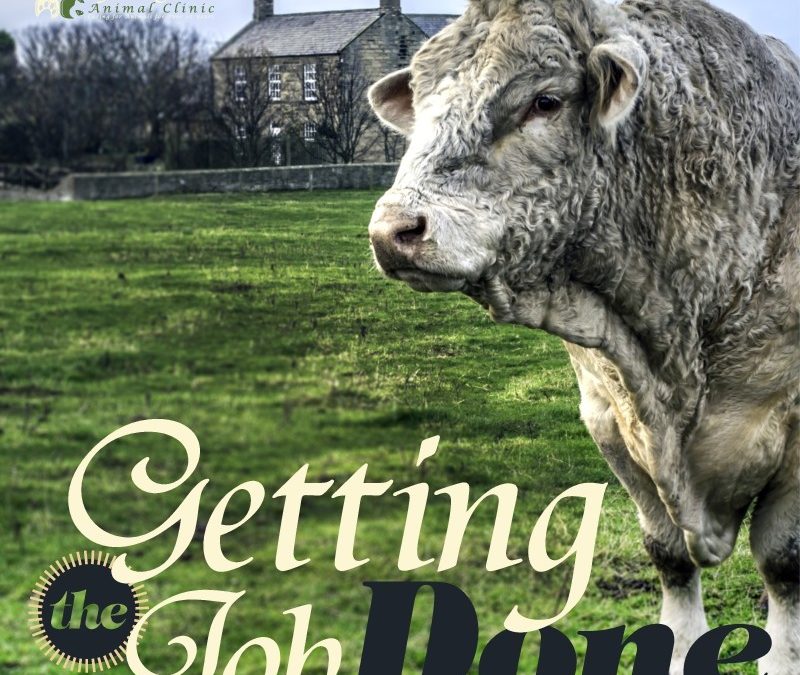With bull fertility being the single biggest factor determining the success of your calf crop, it just makes sense to ensure you’re getting what you expect from your bulls. In fact, it is estimated that fertility as a production measure is 5 to 10 times more important economically than any other metric. Fertility testing can help make sure your bulls have the right stuff to properly service your herd.
Generally speaking bulls are rarely completely infertile, but sub-fertility is common and can affect up to 20 percent of bulls. Sub-fertile bulls may still impregnate females, but it will take more attempts and a longer period of time to do so. These delays can affect the number of calves weaned and the size of your weaned calves come sale time, negatively affecting your profit. Fertility testing prior to the start of the breeding season can alert you to fertility issues that will affect your season and allow time to treat them and retest or replace the bull, depending on the source of the issue.
Fertility testing needs to be done annually since it is a snapshot in time of the bull’s fertility status. Only bulls who are classed as “Unsatisfactory Potential Breeders” for reasons that could not change or resolve with time should cease annual testing as they would be removed from breeding consideration. An example of this would be a bull with only one testicle present.
Fertility testing involves a physical examination of the bull since he needs to be in good conformation and health to be able to keep up with the rigors and physical demands of the breeding season. An examination of his reproductive organs and sperm are also conducted. Bulls who meet minimum criteria for scrotal circumference, sperm motility and sperm morphology are classified as “Satisfactory” but that is only part of the fertility picture. Since 90 percent of beef cows in the United States are bred by natural service, the bull must also display libido and social dominance to be a successful breeder.
Young bulls will often fail an initial breeding soundness evaluation (BSE) due to variability in the onset of puberty. Depending on genetics, bulls can be ready for breeding at any point between about 11 and 16 months of age. Some bulls may be even older when they reach puberty. However, upon retesting at a later date it is often found that these bulls have matured into satisfactory breeders. Bulls who do not pass an early BSE will be classified as “Classification Deferred” and should be rechecked on a regular schedule of every three to four weeks for a few months to determine if maturity will change the outcome of the BSE as it often does.
With a potential return on investment of $20 for every $1 spent, fertility testing your bulls makes sense. Contact us to schedule testing for your bulls today.

